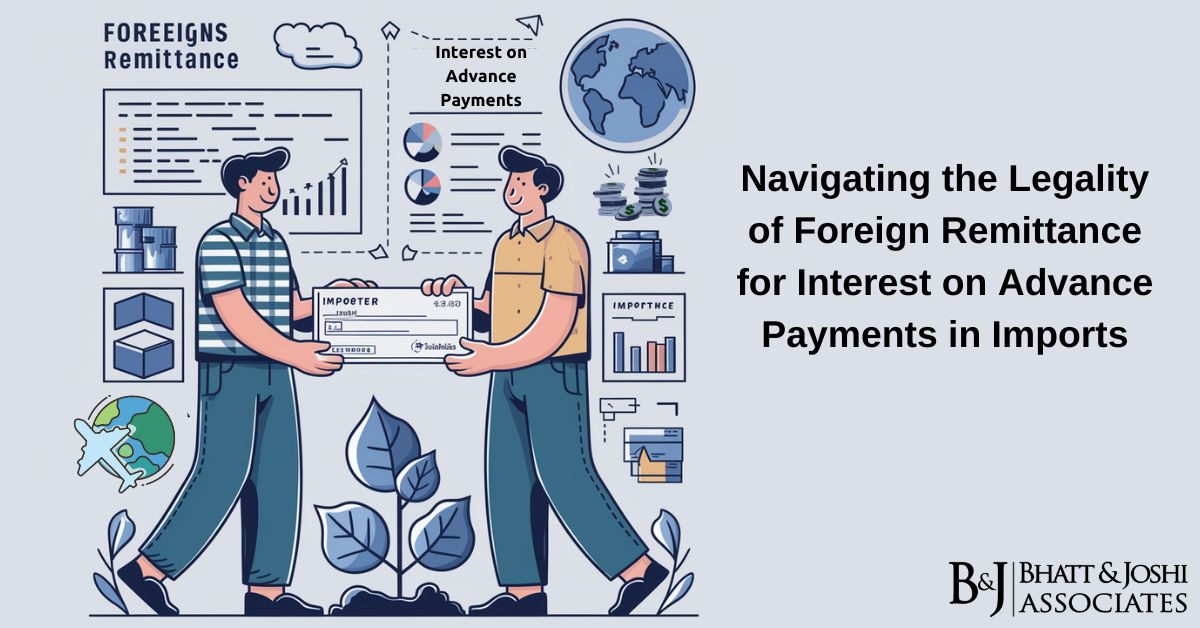
In the realm of international trade, import transactions often involve intricate contractual agreements between overseas sellers and importers. One common point of contention in such contracts is the demand for remittance of interest on advance payments. This practice, though prevalent, raises questions about its legality and fairness, leading to confusion and disputes among stakeholders. In this discussion, we delve into the complexities of contractual terms governing advance payments in import transactions, analyze the validity of demands for interest remittance by overseas sellers, and propose measures to mitigate chaos and ensure fairness for importers.
Understanding the Dynamics of Overseas Contracts
Contracts for the import of goods typically involve a series of financial transactions, including advance payments by importers to overseas sellers. These advance payments are often made to secure the purchase of equipment or goods, with the balance payment due upon delivery within a specified credit period. However, some overseas contracts stipulate additional terms requiring importers to remit interest on the prepayment advances. This practice, though not uncommon, has raised concerns regarding its fairness and legality.
Examining the Validity of Interest Remittance Demands
The demand for interest on advance payments by overseas sellers often triggers confusion and disputes among stakeholders. Importers, in particular, find themselves grappling with the validity of such demands, especially when faced with objections from authorized bankers or financial institutions. The fundamental question that arises is whether importers should be obligated to pay interest on advance payments made by them in the first place.
Deciphering Contractual Terms for Interest Remittance on Advance Payments
To unravel the complexities surrounding interest remittance on advance payments, it is essential to dissect the terms commonly used in overseas contracts for the purchase of equipment or goods. These terms include:
- Overseas Advance Payment: This refers to the initial amount demanded by the overseas seller upon placement of the purchase order by the importer. It represents a prepayment towards the total purchase cost, with the remaining balance due upon delivery.
- Final Payment: The final payment is the amount required to be made by the importer upon the delivery of the equipment or goods, typically after the issuance of a qualified invoice by the overseas seller.
- Prepayment: This term denotes the actual cost incurred by the overseas seller for procuring the specified equipment or goods immediately upon receipt of the purchase order from the importer.
- Qualifying Amount for Interest: This is the prepayment made by the overseas seller, which should be adjusted against any advances or remittances made by the buyer towards the purchase of equipment until the date of final settlement.
- Interest Rate: The interest rate, typically expressed as an annual percentage, is agreed upon in the contract and is often based on the prevailing bank rate in the country of export plus an agreed-upon percentage.
- Interest Period: This refers to the intervening period between the date of prepayment and the date of advance payment until the final settlement.
- Interest Payable: The interest payable is calculated based on the prepayment cost net of all advances and settlements made by the buyer for the specified interest period.
Analyzing Legal Implications of Interest Remittance on Advance Payments
In most cases, demands for interest remittance on advance payments are deemed unfair and invalid. The rationale behind this assertion lies like prepayment and the contractual obligations of the parties involved. Prepayments made by importers serve to secure the purchase of goods and equipment, and any additional financial burden in the form of interest would be unjustifiable. Furthermore, the lack of precise definitions and clarity in contractual terms often leads to ambiguity and confusion, exacerbating the challenges faced by importers.
Mitigating Chaos and Ensuring Fairness
To address the complexities and potential disputes arising from demands for interest remittance on advance payments, stakeholders must adopt a proactive approach. This involves:
- Precise Contractual Definitions: Contracts should meticulously define terms such as prepayment, qualifying amount for interest, and interest payable to avoid ambiguity and confusion.
- Legal Review and Compliance: Importers should seek legal counsel to review overseas contracts and ensure compliance with relevant laws and regulations governing international trade and foreign remittances.
- Negotiation and Clarity: Importers should engage in negotiations with overseas sellers to clarify terms and conditions regarding advance payments and interest remittance, ensuring fairness and transparency in contractual agreements.
- Documentation and Record-Keeping: Maintaining accurate records of financial transactions, including prepayments and settlements, is crucial for resolving disputes and demonstrating compliance with contractual obligations.
Conclusion: Promoting Fairness and Compliance in Import Transactions
In conclusion, the legality of foreign remittance for interest on advance payments in import transactions remains a contentious issue, fraught with complexities and challenges. Importers must navigate contractual terms carefully, ensuring clarity and fairness in their dealings with overseas sellers. By adhering to legal requirements, seeking clarity in contractual agreements, and maintaining meticulous records, importers can mitigate chaos and promote fairness in international trade transactions. Ultimately, fostering transparency and compliance is essential for building trust and fostering sustainable business relationships in the global marketplace.













